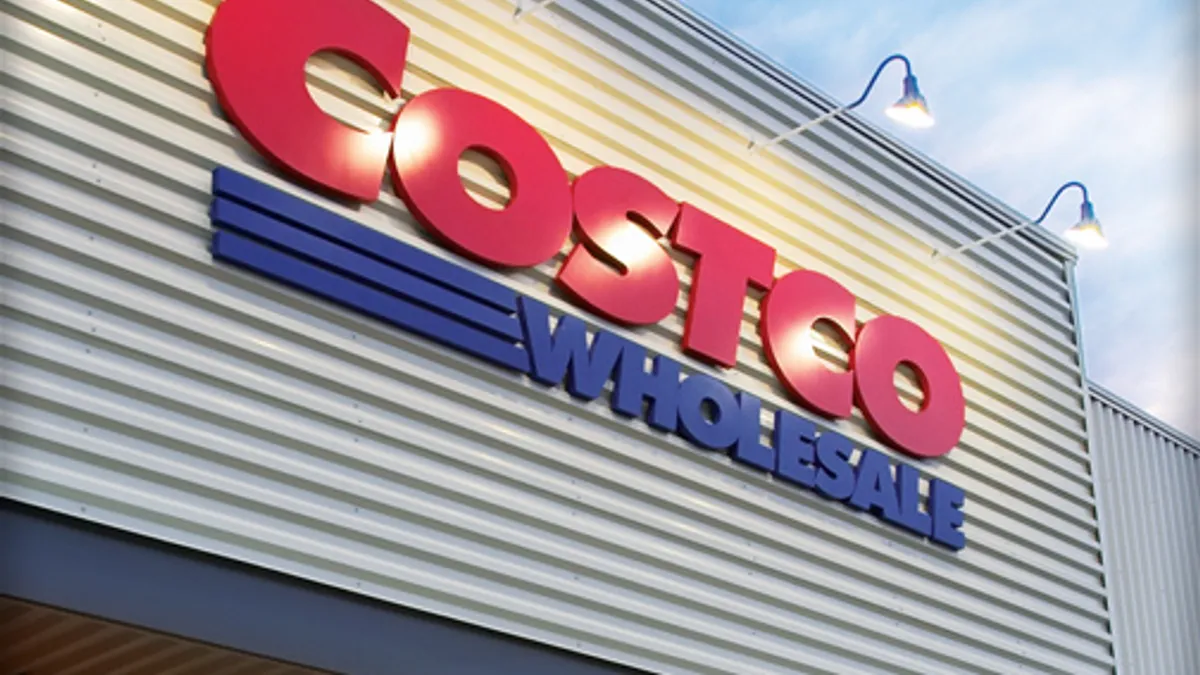Dive Brief:
- JPMorgan’s latest price check found that Costco is on average 58% cheaper than Whole Foods, according to CNBC.
- The firm compared perishable groceries, dry goods and household items at Costco, Whole Foods, Walmart, Target and Aldi. Costco was found to be the least expensive option.
- Costco and Whole Foods share the fewest merchandise items in common, while Costco and Wallmart see the most overlap.
Dive Insight:
Some consumers' shopping habits won’t change after hearing this news. Whole Foods has a focus on natural, organic produce and CPGs, which are seen by some as justification for the higher prices. Plus, the shopping experience at the upscale grocer is drastically different than the one offered at Costco — or any other major retailer, for that matter.
Prices of select items at Whole Foods were cut when its deal with Amazon closed. However, reports at the time criticized that they weren’t cut enough to make a difference to the average shopper. Expect more prices to get the ax at Whole Foods to try to attract more consumers.
Costco, in contrast, has the cheapest prices around. It is able to offer deep discounts by keeping its profit margin minimal. Rather than hoping to sell just a few items with a large profit margin, Costco focuses on selling a great quantity of products with a smaller profit. Despite this model, which has proven successful in the past, the company has seen a decline in membership and narrower gross margins in the last quarter.
Amazon Prime could be a culprit behind Costco’s sagging sales. Half of the affluent shoppers who go to Costco to pick up a new book, paper towels or lawn mower are also Amazon Prime members. The same items are all cheaper at Costco, but the convenience of free two-day delivery could be enough to justify the higher price on Amazon.
In an attempt to fight back, Costco is now offering home delivery. This flies in the face of their retail model, which could be why it’s taken the club store so long to move on this option. A trip to Costco is meant to be an adventure where shoppers roam the aisles for hours, finding new treasures, tasting food samples and ultimately leaving with far more than what was on their shopping list. By taking away this experience in favor of online shopping, consumers end up buying less, hurting Costco's profit model.
Costco would be prudent to use this study's findings to its advantage in its next advertising campaign. Even if the stores just posted big signs in their warehouses reminding shoppers how much cheaper they are than Whole Foods, it would help drive the message home. If Costco branched out to social media, they could tap the interest of millennials, who are largely interested in the healthy, organic products sold at Whole Foods, but may consider switching stores for a better price.








